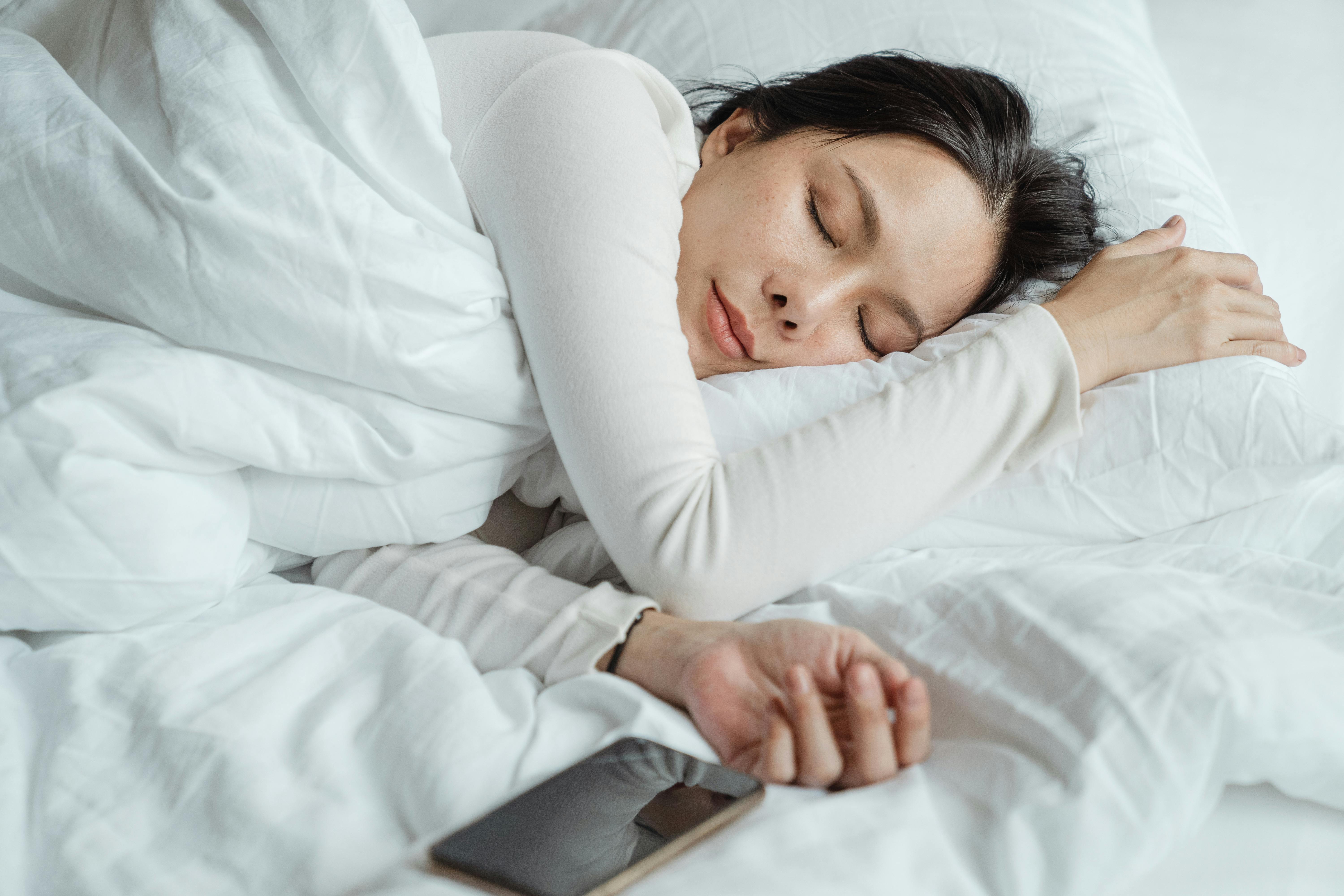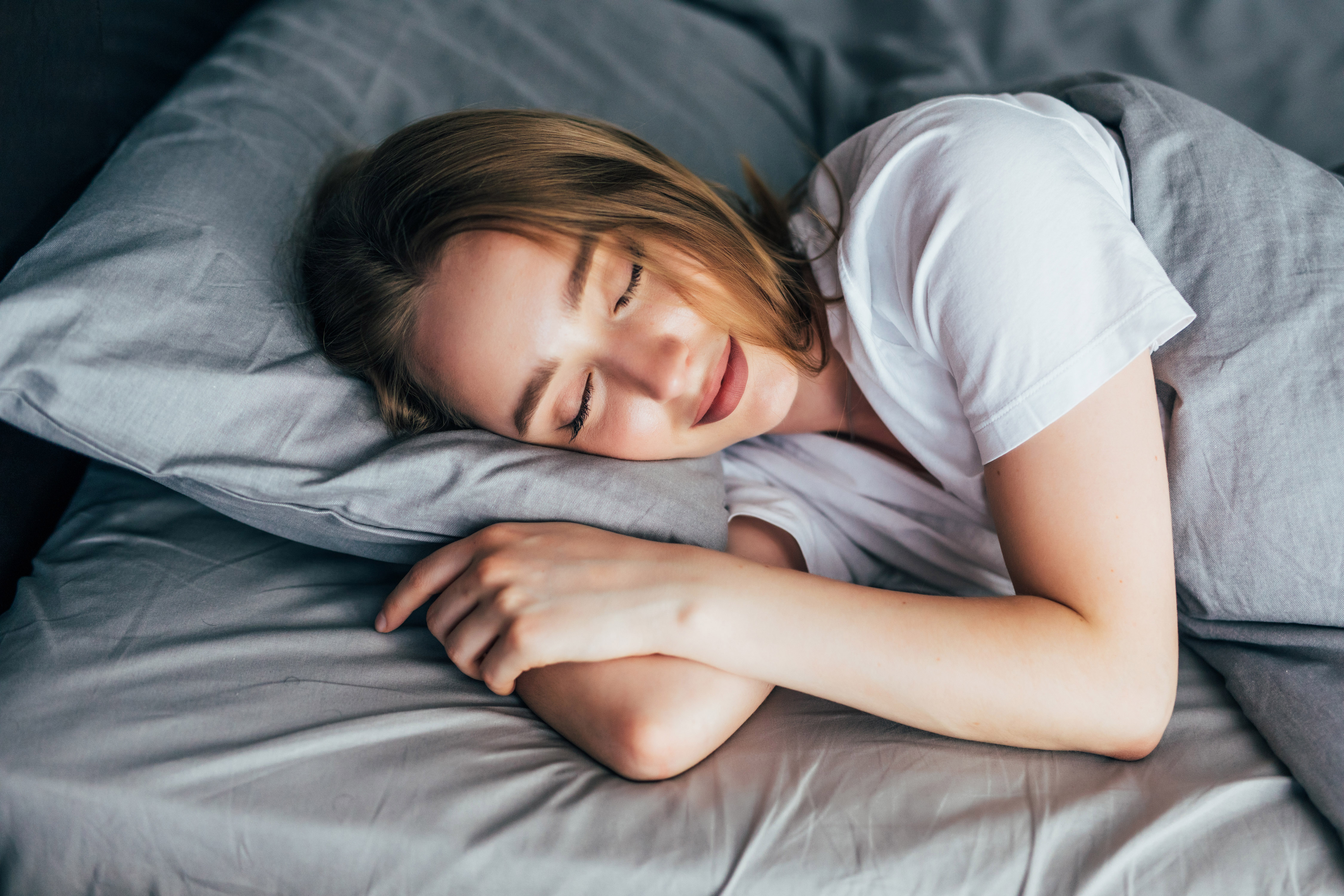Helping Your Baby Sleep Better Without Tears or Stress
Sleep Better. Live Better.
From Sleep and Wellness Clinic – Your sleep therapist



Most of us know what it feels like to lie awake at 2 AM, staring at the ceiling. Or to drag ourselves out of bed after what should have been eight hours of sleep, feeling like we barely closed our eyes. If this sounds familiar, you're definitely not alone.
At Sleep and Wellness Clinic, we see adults every day who are exhausted, frustrated, and convinced they've tried everything. The truth is, good sleep isn't just nice to have—it's absolutely essential for your health, your mood, and your ability to handle whatever life throws at you.
Whether you can't fall asleep, wake up constantly throughout the night, or feel tired no matter how long you sleep, there are real solutions. Our gentle sleep training methods work because they address the root causes of your sleep problems, not just the symptoms.
Here's what happens when you sleep well, night after night:
Your mood becomes more stable. You're less likely to snap at your family
or feel overwhelmed by small setbacks. Your brain works better—you can
focus, remember things, and make decisions more easily. Your heart stays
healthier, and your immune system gets stronger, meaning you get sick
less often.
Most importantly, good sleep protects you from serious health problems
down the road. People who sleep well have lower rates of obesity,
diabetes, heart disease, and even dementia.
When you don't sleep well, every system in your body suffers. It's not
just about feeling tired. Poor sleep affects your hormones, your blood
sugar, your appetite, and your ability to fight off illness. Over time,
chronic sleep problems can lead to weight gain, depression, and a higher
risk of serious diseases.
Sleep challenges affect people of all ages, from early morning wakings
in infants to complex sleep disorders in adults. Understanding these
patterns across different life stages helps us appreciate why
professional sleep support is crucial for the entire family.
Many people don't realize how much poor sleep is actually costing them.
Beyond the obvious fatigue, chronic sleep deprivation affects your work
performance, relationships, and overall quality of life. Studies show
that people who don't get enough sleep are more likely to make mistakes
at work, have car accidents, and struggle with emotional regulation.
Your body also pays a physical price. Poor sleep weakens your immune
system, making you more susceptible to colds, flu, and other infections.
It affects your metabolism, leading to weight gain and increased
cravings for high-calorie foods. Some research even suggests that
chronic sleep deprivation can shorten your lifespan.
The economic impact is significant too. Sleep-deprived individuals often
have higher healthcare costs, take more sick days, and may struggle with
career advancement due to decreased productivity and focus.
At Sleep and Wellness Clinic, we've helped hundreds of adults improve
their sleep using gentle sleep training methods based on solid research
and real-world experience.
Here's what healthy adult sleep includes:
Most adults need 7-8 hours of sleep each night. Not 5 hours, not 6 hours—at least 7 hours of actual sleep. This isn't just a recommendation—it's based on decades of sleep research showing that this is the minimum amount needed for optimal physical and mental functioning.
Your sleep should be mostly uninterrupted. If you're tossing and turning all night or waking up every hour, you're not getting the deep, restorative sleep your body needs. Quality sleep involves cycling through different stages, including deep sleep and REM sleep, which are crucial for physical recovery and memory consolidation.
Going to bed and waking up at roughly the same time every day helps regulate your internal clock. This makes falling asleep easier and improves sleep quality naturally. Your circadian rhythm, or internal body clock, responds well to consistency.
If you're spending 8 hours in bed but still waking up exhausted, the problem is likely sleep quality, not quantity. This is where our gentle sleep training approach makes a real difference.
Understanding Your Sleep Cycles
Sleep isn't just downtime. While you're sleeping, your brain is
incredibly busy doing maintenance work that can't happen while you're
awake.
During sleep, your brain sorts through the day's experiences, deciding
what to remember and what to forget. It also flushes out toxic waste
products that build up during the day—including proteins linked to
Alzheimer's disease. Your brain is literally cleaning itself while you
sleep.
Sleep also keeps your hormones balanced, regulates your blood sugar,
and controls your appetite. This is why people who don't sleep well
often struggle with weight gain and cravings for unhealthy foods. The
hormones leptin and ghrelin, which control hunger and satiety, become
imbalanced when you don't get enough sleep.
While adults face complex sleep challenges, it's worth noting that
sleep disruptions can begin early in life. Many families struggle with
pediatric sleep issues, from early morning wakings to nighttime
disturbances that affect the entire household's rest quality.
Let's clear up some misconceptions that might be sabotaging your
sleep:
Unfortunately, this doesn't work. Sleeping in on Saturday and Sunday might help you feel better temporarily, but it can't undo the damage from a week of poor sleep. Plus, irregular sleep schedules often make it harder to fall asleep on Sunday night. Sleep debt accumulates over time and can't be easily repaid with a few extra hours.
This isn't true. Adults of all ages need 7-8 hours of sleep. What changes with age is that sleep often becomes lighter and more fragmented. Medications can also interfere with sleep quality. Many older adults experience changes in their circadian rhythms, making them feel tired earlier in the evening and wake up earlier in the morning.
Not necessarily. If you're regularly sleeping 9+ hours and still feeling tired, something else might be going on. This could signal a sleep disorder or other health issue that needs attention. Oversleeping can sometimes indicate underlying health problems or sleep disorders like sleep apnea.
While alcohol might make you feel drowsy initially, it actually disrupts your sleep cycles and reduces sleep quality. You may fall asleep faster, but you're likely to wake up more during the night and experience less restorative deep sleep.
Your sleep environment plays a crucial role in sleep quality. Many people underestimate how much their bedroom setup affects their ability to fall asleep and stay asleep.
Temperature is critical—your body naturally drops in temperature as you prepare for sleep, and a cool room (around 65-68°F) supports this process. Light exposure, especially blue light from screens, can interfere with your body's production of melatonin, the hormone that regulates sleep.
Noise can be disruptive even if it doesn't fully wake you. Consistent, low-level sounds like white noise or earplugs can help mask disruptive noises. Your mattress and pillows also matter—uncomfortable sleeping surfaces can cause frequent position changes and lighter sleep.
Sometimes, despite your best efforts, sleep problems persist. This often
means there's an underlying sleep disorder that requires professional
gentle sleep training.
The most common sleep disorders in adults include:
Insomnia
Trouble falling asleep or staying asleep, often caused by stress,
anxiety, or habits that interfere with sleep. There are different
types of insomnia—some people have trouble falling asleep, while
others fall asleep easily but wake up frequently during the night.
Sleep Apnea
A serious condition where your breathing repeatedly stops during
sleep, causing poor oxygen levels and frequent awakenings. This
condition is more common than many people realize and can have
serious health consequences if left untreated
Restless Leg Syndrome
An uncomfortable sensation in the legs that creates an urge to
move them, often interfering with the ability to fall asleep.
Shift Work Sleep Disorder
Affects people who work non-traditional hours, disrupting their
natural circadian rhythms.
Understanding different types of sleep disturbances is crucial for
proper treatment. Sleep disruptions manifest differently across age
groups—from nightmares and night terrors in children to complex adult
sleep disorders that require specialized gentle sleep training
approaches.
You should consider getting help if you have chronic snoring, wake up
frequently during the night, feel tired during the day despite spending
enough time in bed, or have trouble concentrating. Other warning signs
include morning headaches, mood changes, and difficulty staying awake
during routine activities.
Our sleep consultants, Gayatri Pavani and K. Sree Bhanu, take a personalized approach to solving your sleep problems. We don't believe in one-size-fits-all solutions because everyone's sleep challenges are different.
What we do:
Our expertise extends beyond adult sleep issues. We understand that family sleep challenges often interconnect—when one family member struggles with sleep, it frequently impacts everyone's rest quality. This holistic approach ensures comprehensive sleep wellness for your entire household.
Our gentle sleep training process typically begins with a thorough
evaluation of your current sleep patterns, lifestyle factors, and any
underlying issues that might be affecting your sleep. This includes
looking at your sleep environment, daily habits, stress levels, and
medical history.
We then work with you to develop a personalized plan that addresses
your specific needs. This might include gradually adjusting your sleep
schedule, implementing relaxation techniques, or making environmental
changes to your bedroom.
The process is called "gentle" because we make changes gradually,
allowing your body and mind to adjust naturally. This approach is more
sustainable than dramatic changes and has better long-term success
rates.
You can start improving your sleep tonight with these expert-recommended strategies from our gentle sleep training program:
Stick to a schedule
Go to bed and wake up at the same time every day, even on
weekends. Your body thrives on routine, and consistency helps
regulate your internal clock.
Create boundaries
Stop drinking caffeine after 2 PM and put away screens at least an
hour before bed. The blue light from phones and tablets interferes
with your natural sleep hormones. Consider using blue light
filters or wearing blue light blocking glasses if you must use
devices in the evening.
Make your bedroom sleep-friendly
Keep it cool (around 65-68°F), dark, and quiet. Consider blackout
curtains or a white noise machine if needed. Your bedroom should
be a sanctuary dedicated to sleep and relaxation.
Watch your timing
Don't eat large meals or do intense exercise close to bedtime.
Both can keep you awake. Try to finish eating at least 3 hours
before bedtime, and avoid vigorous exercise within 4 hours of
sleep.
Wind down properly
Develop a relaxing bedtime routine. This might include reading,
gentle stretching, or deep breathing exercises. Start this routine
30-60 minutes before you want to fall asleep.
Manage stress
Practice stress-reduction techniques like meditation, journaling,
or progressive muscle relaxation. Chronic stress is one of the
biggest enemies of good sleep.
At Sleep and Wellness Clinic, we believe everyone deserves good sleep.
When you sleep well consistently,
everything else in your life gets easier. You have more energy, better
focus, and greater resilience to handle stress.
The benefits of good sleep extend far beyond just feeling rested.
You'll notice improvements in your mood,
productivity, relationships, and overall health. Many of our clients
report that solving their sleep problems was a turning point in their
lives.
Book a consultation with our certified sleep specialists. We'll work together to identify what's keeping you awake and create a plan that actually works for your life.
Good sleep isn't a luxury—it's a necessity.
Let our gentle sleep training expertise help you get the rest you
deserve.

Nightmares vs. Night Terrors: What’s Waking Up Your Child (And You)?
Written by your friendly Child Sleep Specialist who's also had many 3 a.m. wake-up calls ...
Read More
Teething and Sleep: What’s Really Keeping Your Baby Up at Night?
You’re up at 2 AM again, pacing the hallway with a baby who seems wide awake and entirely uninterested in going back ...
Read More